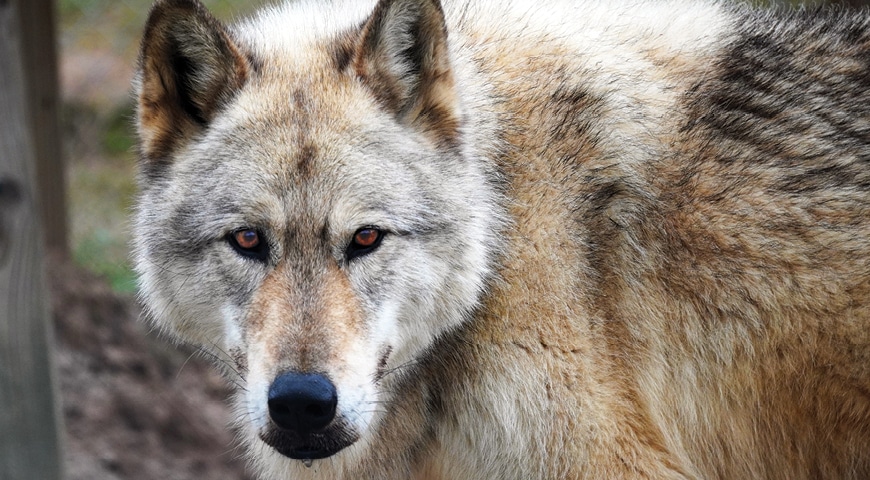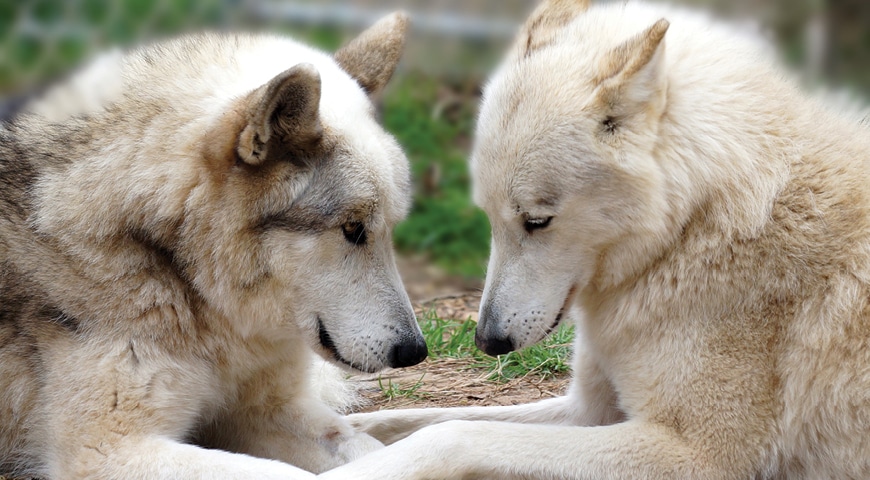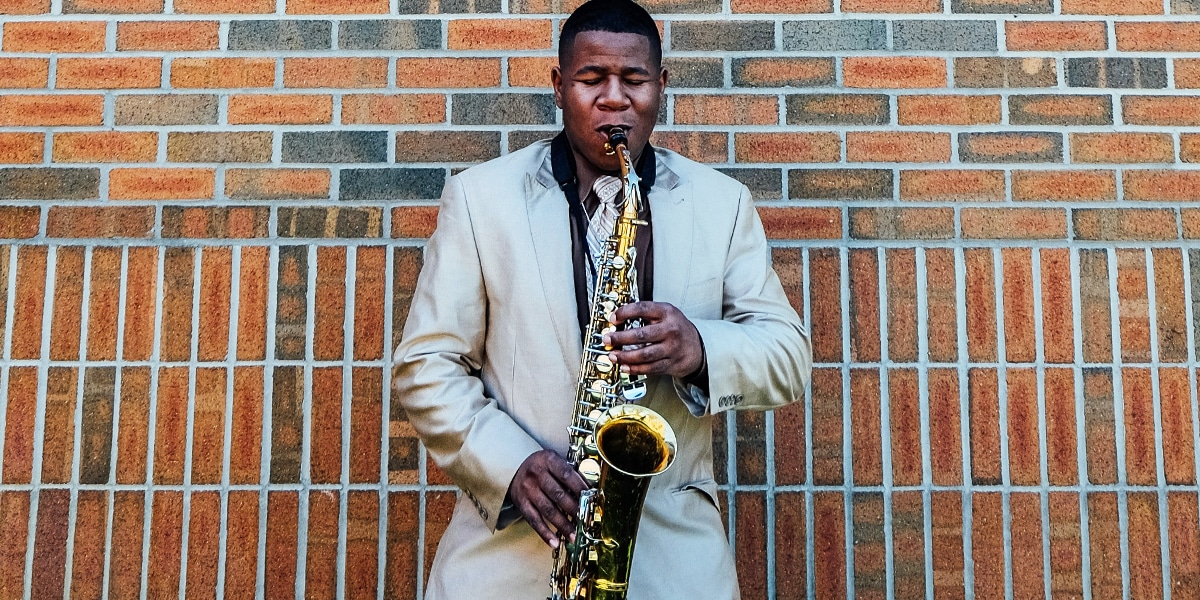The lives of three women with a shared desire to provide healing and protection to neglected animals intertwine at the Saint Francis Wolf Sanctuary.
Nicole Rogers had just moved into a red barn house in the rural town of Montgomery, Texas. It was nightfall. Nestled in towering pines, wildlife, and a creek that opens into a lake, Nicole would describe her home as a safe haven.
But not on this evening. An intensifying chorus of howls made her think her house was surrounded by wolves. She hollered for her sixth-grade daughter to come quickly inside.
Since when did Texas have wolves? The next morning Nicole introduced herself to her neighbor, “Hey, we just moved in, and last night it sounded like there was a pack of wolves around here.”
“It is a pack of wolves,” her neighbor confirmed. “When the wind blows this way, you can hear all the wolves across the lake at the Saint Francis Wolf Sanctuary.”
From India and Africa to Texas
Not long after Nicole’s conversation with her neighbor, she visited the Saint Francis Wolf Sanctuary (SFWS), where she met sanctuary founder Jean LeFevre. Neither of them knew their paths would one day be mysteriously intertwined.
Jean was eclectic. She had snowy, Gandalf-like hair, a thick British accent, and “eyes as blue as Paul Newman’s.” The Seneca Wolf Clan Nation had named her a Peace Elder, giving her the title of Grandmother, partly because of her dedication to animal conservation.
“She brought a wolf dog out for everyone to touch,” Nicole recalls. “I remember thinking to myself, ‘I don’t know if that animal likes that,’ but Ms. Jean just had this aura and deep sense of peace about her that made the animals feel comfortable. She epitomized that Native American perspective on wolves—honoring them as the sentient beings they are. She believed the wolves could help heal people, and people could help heal the wolves’ trauma. You walked away feeling like you had been somewhere sacred.”
How did a British woman end up becoming a Peace Elder for the Senecas and start a wolf sanctuary in Montgomery, Texas?
When Jean was a young woman, she and her parents fled the Blitz in England and settled in India. At age 17, Jean became one of the first women in the country to obtain her pilot’s license to fly Tiger Moths. She met her husband, John, in 1946; they were married in Chennai the next year. They left India in 1949 and moved to East Africa. Jean worked in India and Africa with the Red Cross and the Girl Scouts. She and John raised their three sons in Tanzania before moving back to England in the early 1960s.
Living in India and Africa during turbulent times was perhaps how Jean became so drawn toward inclusive, nonjudgmental spirituality. She discovered what she was looking for in the community and beliefs of the White Eagle Lodge, founded in the United Kingdom, which, according to its website, “teaches a universal spiritual path of brotherhood towards all life.”
Advocating for Animals
“Her grounding in religion, animals, and people summarizes where she came from and how she got where she was,” reflects her middle son, Calvin LeFevre.
Calvin recalls the animal sanctuaries she started, including Shangri-La in Kent (England). He remembers her foray into animal activism—how she became a vegetarian, spoke out about the cruelty of Battery chickens crammed into tiny cages, traveled frequently to Newfoundland with model Celia Hammond to bring attention to the brutal clubbing of baby seals for fur coats, and opposed the vivisection of animals and the cruel use of them for beauty and health products.
She helped establish the Kit Wilson Trust for Animal Welfare, which has become one of the most well-respected animal welfare societies in the United Kingdom.

He remembers the numerous animals that had been badly mistreated that she helped to save and lead a secure and loved life—the donkey that had been struck with a beer bottle in a Welsh coal mine, the lamb with its legs broken that had been stolen by some teenagers then tossed out the window of a moving car, and too many dogs and cats to count.
“She was a strong advocate of the need for people to help animals and animals to help people,” Calvin says. “Francis of Assisi was one of her favorite saints. There was a relationship between animals and people that she knew was vital. That’s the thing she stood for more than anything else: connecting people and animals. That spiritual and emotional bond would help heal the scars and trauma of both people and animals in need.”
Embracing Brother Wolf
Jean and John followed their sons to America in 1983 and eventually settled in Montgomery, Texas, where she helped build the church and retreat center for the White Eagle Lodge of the Americas. She became the head minister of the church and oversaw its retreat center.
Jean was initiated into the Seneca Wolf Medicine Lodge in 1976. She studied under an elder of the Wolf Clan Nation and, after being named a Peace Elder, was certified in teaching the Seneca tradition.
In 2002, a timber wolf was found between Montgomery and Houston. The wolf was caught in a trap and had a bullet in its shoulder. It had reportedly escaped from the North American Wolf Association (NAWA), which, according to SFWS and the Indigo Mountain Nature Center, was an irresponsible sanctuary filled with malnourished and unvaccinated wolves.
The veterinarian caring for the wolf happened to know Jean LeFevre—that shamanistic woman who would take in anything with a soul, which was everything. One look into the wolf’s sad eyes was all it took for Jean.
She named the wolf Mystery. Jean would soon rescue several other neglected wolves from NAWA upon its closing: Timbre, Duchess, Yukon, Wacipi, and Spirit.
The Saint Francis Wolf Sanctuary was born.
Feathers on the Path
Nicole remembers once asking Jean if she could borrow an eagle feather for a ceremony with her good friend, who was Native American. Jean informed Nicole that all her feathers had been stolen. But with compassionate eyes, she smiled and said, “If it’s meant to happen, one will be in your path.” Nicole’s friend woke up two days later to find an eagle feather outside her front door. When Nicole shared the story with Jean, she simply smiled in response, as if she was not the slightest bit surprised by the universe’s offering.
Jean and Nicole were cut from the same cloth: two adventurers whose souls were formed by Africa. Nicole spent 25 years working in public health all around the world: from Denton, Texas, to the Ivory Coast in West Africa to Bangladesh, New Orleans, Boston, and San Antonio. Her most formative and rewarding years were in Africa, living among the Attie and Dioula tribes.
Her return to the United States, with its self-centeredness and greed, was a trying transition, having been surrounded by African tribes who did not even have a word for “I” in their language. The red barn house she purchased in Montgomery would become her contemplative sanctum, where she brought the wisdom she learned from Africa into her daily meditative practice.
In 2016, Nicole lost her job in public health and found herself seemingly stuck in this small, rural Texas town, unsure where to go or what to do. She recalls sitting on her screened-in porch night after night, contemplating her future in that liminal space as she listened to the birds and the bullfrogs and the wolves. A feather would soon appear.
A Legacy Bestowed
Just two weeks after losing her job, Nicole was notified through an online job platform that SFWS was in search of administrative leadership. The SFWS board reached out to her without even knowing she was unemployed.
Jean was nearing the final years of her life after a long battle with dementia, and her family hoped her legacy could be carried on at a new site for the sanctuary. Nicole had ample nonprofit experience but nothing remotely close to managing an animal sanctuary. Yet, having experienced the magic of Jean and the wolves she saved, she could not shake the opportunity from her mind. She decided to go for it.
Around that same time, Nicole’s father had been admitted into the ICU. One day while visiting him, she received a call from SFWS, asking her to come in for another interview. She knew her father would want her to pursue her passions, so she told him that she was going to go try to get the job, kissed him on the head, and left the ICU. Fifteen minutes later, he passed away. The next week, Nicole Rogers was hired as executive director.
Crossroads
Managing a wolf sanctuary is difficult enough. Relocating a sanctuary and finding a sufficient piece of property was even more challenging.
In today’s market for exotic animals, people fail to realize how difficult it is to manage a sanctuary the right—and legal—way. Nicole says 80 percent of wolves are euthanized by the time they are 3 years old because of people’s inability to keep up with these large carnivores, which act like puppies for only the first few weeks of their lives.
Wolves require spacious enclosures when living in captivity with daily enrichment to support both their mental and physical health, a special diet requiring up to 20 pounds of meat per week, and a bonded social life with other wolves. Nicole and SFWS were prepared to give the wolves to another sanctuary they trusted before settling for a piece of land that was anything less than perfect.

There were days when Nicole wondered if her time as executive director would be short-lived or if the sanctuary would fold altogether. “I was starting to get really anxious,” she recalls. “I felt like there was no way we were going to raise enough money to build out the new sanctuary in time. But I could just see that smile of Jean when she told me, ‘If it’s meant to happen, one will be in your path.’”
Prior to Nicole joining SFWS, the board had purchased a desirable property 17 miles away but did not have the money to develop the land into the sanctuary they needed. Nicole felt that she had been entrusted to carry and care for Jean’s legacy, yet the future of SFWS seemed to hang in the balance.
A Spiritual Connection
Sometime in the 1970s, a 15-year-old girl ran away from her home in Gonzales, Texas, and sneaked onto a tanker stationed in a Houston port. She had no idea where the steamboat was heading, but fate took her to Kenya. The girl’s name was Gypsy Cole. Gypsy lived with the Maasai until her late 20s, when she decided to move to Costa Rica. She eventually found her way back to Gonzales, where she obtained a degree in psychology and became a counselor.
Once she returned to Texas, she learned of the Saint Francis Wolf Sanctuary and Jean’s story, so she decided to visit it and see the wolves living there. She fell in love. Six months into Nicole’s role as executive director, she received a call from an attorney representing the estate of Gypsy Cole. Gypsy had left over a quarter of a million dollars in her will for SFWS because of the spiritual connection she felt when she was at the sanctuary.
“Gypsy Cole single-handedly saved the sanctuary,” Nicole reflects.
Nicole struggles to include her name with Gypsy and Jean, but there’s no denying that SFWS wouldn’t be what it is today without this trinity of women, who were all formed by Africa, by adventure, by animals.
“Nicole has carried it on,” Calvin LeFevre reflects. “When Mom started the wolf sanctuary in 2001, she would have all kinds of groups come by: veterans, battered women’s groups, autistic children, people with disabilities, Boy Scouts, Girl Scouts. She always knew animals have a strong part in helping people heal.”
It’s this link between animals and humans, this philosophy bestowed by Jean LeFevre, that the Saint Francis Wolf Sanctuary tries to cultivate today. Adds Nicole, “Jean really understood that it took this profound empathy and compassion to protect our connectedness to animals, to one another.”
Jean passed away on July 8, 2020, just days after the last piece of equipment was moved to the new sanctuary. God found a feather.
Learn more about the Saint Francis Wolf Sanctuary.








